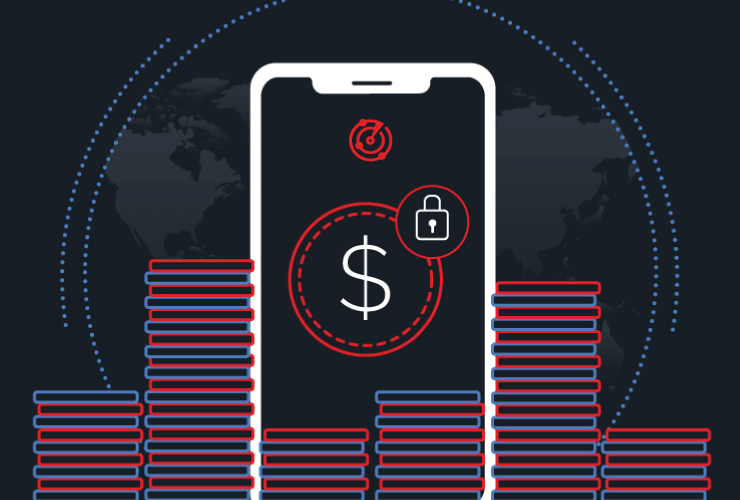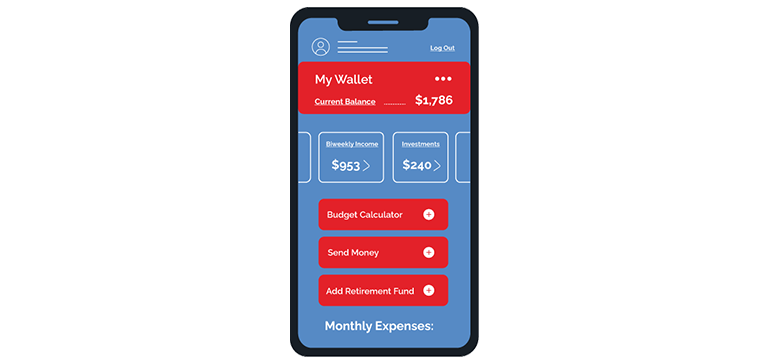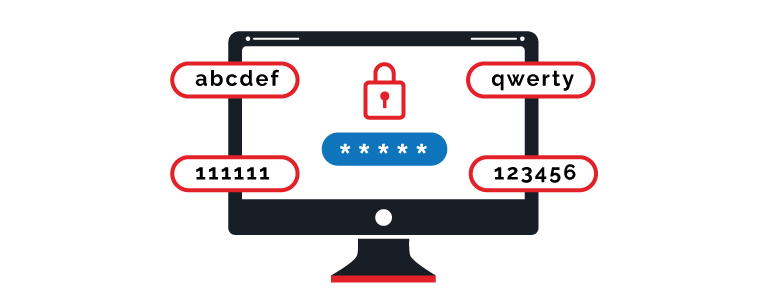August 20, 2021
Is Crypto the Future of Money? Bitcoin Outlook
How many dollars do you have in your wallet? What about coins? If you’re like me, you have to run [...]

WHAT’S IN THIS REVIEW?
Disclaimer: Partnerships & affiliate links help us create better content. Learn how.
Research suggests that global crypto trading grew to 106 million users in January 2021, representing another major step in terms of adoption. Despite the volatility, it makes sense due to the potential for profit as well as offering better return rates than the typical bank account or stock market.
Cryptocurrencies are slowly beginning to hit the mainstream, with many ways to easily purchase the latest coins. Even PayPal now supports Bitcoin, Ethereum, Litecoin, and Bitcoin Cash via their platform. Of course, this has also led to a rise in scams and fraud. It’s a common occurrence if you follow forums related to crypto, as people often flock there to warn others.
In many cases, a premium VPN helps sidestep methods used by scammers to separate an owner from their coins. We’ll discuss how to properly protect your investment with a VPN and a range of additional tips.
Virtual private networks (VPNs) work to create a secure connection for your devices while online. A VPN is useful for a variety of tasks, and crypto trading is no different. This can take the form of buying coins securely from an exchange or anonymizing online purchases.
We’ve listed some of the benefits you’ll find while using a VPN for crypto trading below:
Many VPNs will actively advertise the ability to access an international market that may be blocked locally. You can see an example of this in the VyprVPN example below.
We’d advise against this, as it’s not difficult to find out whether or not a user is connected to a VPN when their IP address/location changes frequently.
Binance actively blocks users from the U.S. Their ToS states that if ‘an issue has arisen with the verification of your identity,’ your account could be terminated.
“You acknowledge and agree that our decision to take certain actions, including, without limitations, to terminate, suspend, or restrict your access to your Account(s) or the Services, may be based on confidential criteria that are essential to our risk management and security protocols. You agree that we are under no obligation to disclose the details of our risk management and security procedures to you.”
In other words, they have the right to terminate your account. They don’t even have to give you a reason as to why they’ve done so.
It’s worth noting that I’ve personally used various larger crypto exchanges while using a number of VPN providers. I’ve never faced any issues aside from a CAPTCHA or two due to irregular login activity. However, I’ve never broken the terms of service. I’d strongly recommend sticking to the services available in your region just to be safe.
A VPN offers ample protection, but there are still a number of additional methods to protect cryptocurrency investments that you should be aware of.
Make sure to use any and all of the tips below combined with a VPN for the best possible results.

“Not your keys, not your coins.” I’ve seen it and read it a million times, and it’s still true. But what does the popular phrase actually mean?
If you hold a public exchange, you’ll have access to the value of the coins, rather than the physical coins themselves. In other words, the exchange will pay you for the value of the crypto if you decide to buy, sell, or trade at any time. However, only they will know the private key, which identifies the owner of the coins, and is usually in password form.
It can be tempting to keep coins on larger exchanges, especially since you can engage in crypto trading using the same app. They also tend to offer wallets to hold your crypto. But what if they decide to halt trading on the platform suddenly or your account is blocked unfairly?
If you plan to invest seriously, it makes sense to obtain your private keys as soon as possible.
As for offline storage, paper wallets involve printing a hard copy of the keys to store physically. It’s not unheard of for users to engrave their private keys into steel plates. It’s a sure way to keep it safe in case of a house fire or a natural disaster. Of course, they could be lost or stolen, and the money will be gone forever.
Hardware wallets stored on external drives are another offline storage method for private keys. A physical option, it offers better security as they’re not connected to the internet at any point in time.

Coins on an exchange are typically kept in an online wallet of sorts, although you’ll have no access to the private key. It’s useful for keeping all of your crypto in one place. However, that’s also risky from a security point of view.
It’s not recommended to keep large bags on an exchange. At the very least, make sure that two-factor authentication (2FA) is on, and set buy limits if you have a payment method saved.
A cryptocurrency wallet is an app that will run on a device like a smartphone or a computer. Essentially, the crypto will be stored digitally. The wallet keeps a record of what you have and where it is by referencing the blockchain.

Good password security should be a staple for any online account. After all, there are potentially large sums of money involved. And there’s no way to get the money back if someone manages to log in and send your crypto to a random address.
Never give out your password, especially not to anyone who claims they’ll be able to help if you’ve run into a technical issue. Sometimes, even 2FA and a strong password won’t be enough to keep hackers at bay.
For example, one Coinbase user lost over $34,000 in less than ten minutes after being hacked:
“I watched in real-time as my portfolio went down and down in value, from the time I logged in, to the time I deactivated, it was nine minutes. And in those nine minutes, there were four minutes with 18 separate transactions.”
The transactions consolidated all of his virtual currencies into Bitcoin Cash, then exported the funds to an external account that was untraceable.
Despite complaining to everyone from the FBI to the Securities and Exchange Commission (SEC), the Consumer Financial Protection Bureau (CFPB), the Financial Crimes Enforcement Network (FinCEN), lawmakers, and the Better Business Bureau (BBB), it’s unlikely he’ll ever get the money back.
He would have been better protected if he had used a premium VPN, a digital wallet, or had kept his private keys offline.
What should you be looking out for from the best VPN for crypto trading?
They need to be trusted with your personal data, especially given the sensitive nature of your finances. If you’re keeping up with ever-changing prices, you need a speedy service that’s also reliable enough to work in the background with no downtime.
You could also look for a VPN with dedicated IP addresses. These are assigned solely for your use to avoid any login headaches. We’d opt for NordVPN as the best overall choice, but heavy hitters like ExpressVPN and CyberGhost also fit the bill for crypto trading.
| VPN | Lowest Price | Countries | Money-Back Guarantee | # of Devices |
|---|---|---|---|---|
| NordVPN | $3.99/mo. | 60 | 30 days | 6 |
| CyberGhost | $2.23/mo. | 91 | 45 days | 7 |
| ExpressVPN | $8.32/mo. | 94 | 30 days | 5 |
NordVPN has a strict logging policy and has managed to ace multiple audits to confirm all security claims. It’s also quick and consistent if a little more expensive than the average budget provider. Though, it doesn’t pay to scrimp when looking after your crypto anyway.
Another bonus would be if the VPN allows you to pay using crypto. This adds another layer of anonymity rather than linking your name and email to a traceable account. As with most other sectors, adoption has been slow, if not steady.
The institutional adoption of cryptocurrencies over the past 12 months has seen a surge in the market, which has subsided ever so slightly at the current time of writing. The influx of new users is prime pickings for scammers. This is especially true if they’re just starting to learn about the technology and how it all works.
Everyone wants to get involved, while victims tend to be elderly or less tech-savvy users. Regardless, it can happen to anyone if you’re not careful.
With a lack of regulations in the crypto-sphere, the best way to protect yourself is by using a VPN. NordVPN is a great crypto VPN and our top choice overall, though everyone’s needs are different. You can check out our top 2025 VPNs if you’re interested in learning more about the competition.
WHAT’S IN THIS REVIEW?
| Cookie | Duration | Description |
|---|---|---|
| __cfduid | 1 month | The cookie is used by cdn services like CloudFlare to identify individual clients behind a shared IP address and apply security settings on a per-client basis. It does not correspond to any user ID in the web application and does not store any personally identifiable information. |
| cookielawinfo-checkbox-advertisement | 1 year | The cookie is set by GDPR cookie consent to record the user consent for the cookies in the category "Advertisement". |
| cookielawinfo-checkbox-analytics | 1 year | This cookies is set by GDPR Cookie Consent WordPress Plugin. The cookie is used to remember the user consent for the cookies under the category "Analytics". |
| cookielawinfo-checkbox-necessary | 1 year | This cookie is set by GDPR Cookie Consent plugin. The cookies is used to store the user consent for the cookies in the category "Necessary". |
| cookielawinfo-checkbox-non-necessary | 1 year | This cookie is set by GDPR Cookie Consent plugin. The cookies is used to store the user consent for the cookies in the category "Non-necessary". |
| cookielawinfo-checkbox-performance | 1 year | This cookie is set by GDPR Cookie Consent plugin. The cookie is used to store the user consent for the cookies in the category "Performance". |
| viewed_cookie_policy | 1 year | The cookie is set by the GDPR Cookie Consent plugin and is used to store whether or not user has consented to the use of cookies. It does not store any personal data. |
| Cookie | Duration | Description |
|---|---|---|
| cookielawinfo-checkbox-functional | 1 year | The cookie is set by GDPR cookie consent to record the user consent for the cookies in the category "Functional". |
| cookielawinfo-checkbox-others | 1 year | No description |